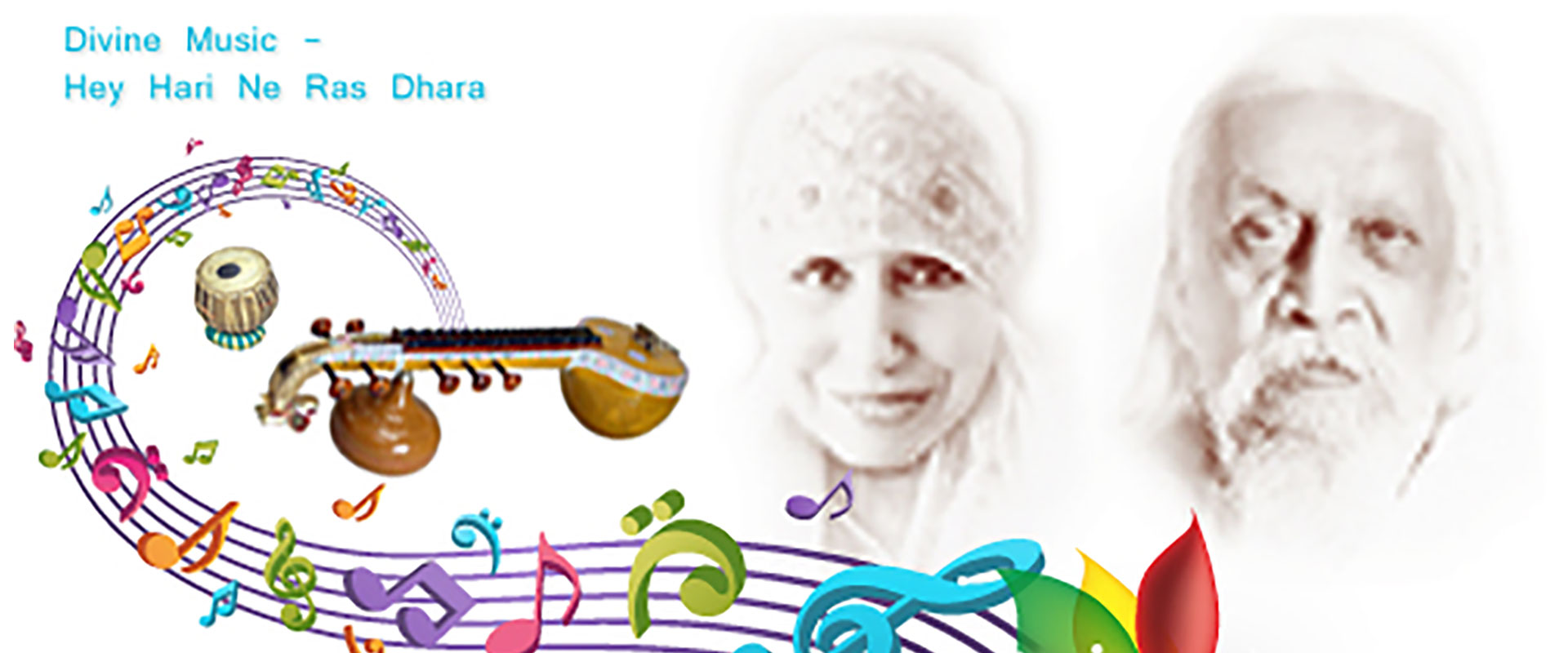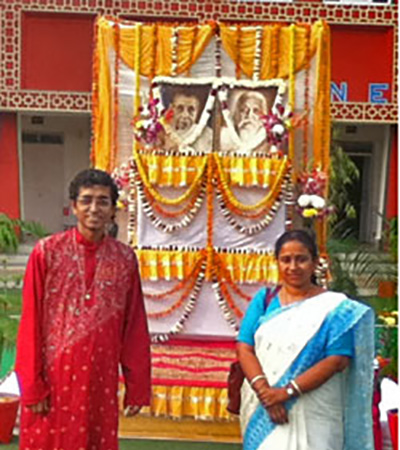
Date:-October 28th 2012, Sunday.
Program Details :-
5:00 – 5:30 PM - Meet and Greet
5:30 – 5:45 PM - Meditation with Music
5:45 – 7:45 PM - Divine Music By Pt. Shantanu Bhattacharyya & Durba Bhattacharyya
8:00 PM - Dinner
Place:- 631 Vale Drive, Morganville, NJ 07751
Information:-
New Jersey ---> Vivek Sinha ---> 732-772-0864
Pennsylvania ---> Devendra Patel ---> 215-970-5170
New York ---> Govind Nishar ---> 914-400-3444

Pandit Shantanu Bhattacharyya is foremost among the young maestros of Hindustani classical vocal music. President’s Gold Medal winner Shantanu is a Top graded artist of All India Radio and Doordarshan. Possessing the rare feat of having won simultaneous top positions in Khayal and Thumri at All India Radio music competition, Shantanu Bhattacharyya’s singing has been described by senior maestros including Guruma Vidushi Meera Banerjee, as a true reflection of Ustad Bade Ghulam Ali Khan.
Durba Bhattacharyya
To sing soulfully in sur and in impeccable sense of laya and tala invoking the Divine Presence, is the priceless quality Durba Bhattacharyya possesses. She is also a Harmonium artist of extraordinary merit and has accompanied great vocalists in major concerts across the world.
Durba Bhattacharyya has performed in Kolkata, Delhi, Chennai, Bangalore, Chandigarh, Ambala, Patiala, Bhopal, Indore, Ujjain, Surat, Agartala, Mathura, Auroville and Pondicherry. She is an artist of All India Radio Kolkata. She has regaled the audience in USA, Canada, France, England and Singapore, and has to her credit several CDs.
Sri Aurobindo & The Mother On the Music
Q: What is there ``behind'' the external form of music?
The Mother: Music is a means of expressing certain thoughts, feelings, emotions, aspirations. There is even a region where all these movements exist and from there, as they are brought down, they take a musical form. One who is a very good composer, with some inspiration, will produce very beautiful music, for he is a good musician. A bad musician may also have a very high inspiration; he may receive something which is good, but has he possesses no musical capacity, what he terribly commonplace, ordinary, uninteresting. But if you go beyond, if you reach just the place where there is this origin of music - of the idea and emotion and inspiration - if you reach there, you can taste these things without being in the least troubled by the forms; the commonplace musical form can be linked up again with that, because that was the inspiration of the writer of the music. The essential quality of music depends upon where the music comes from, upon its origin.
Q: Is Music Superior to Other Arts?
Sri Aurobindo: I do not know what to say on the subject you propose to me - the superiority of music to poetry - for my appreciation of music is bodiless and inexpressible, while about poetry I can write at ease with an expert knowledge. But is it necessary to fix a scale of greatness between two fine arts when each has its own greatness and can touch in its own way the extremes of aesthetic Ananda? Music, no doubt, goes nearest to the infinite and to the essence of things because it relies wholly on the ethereal vehicle, sabda, (architecture by the by can do something of the same kind at the other extreme even in its imprisonment in mass); but painting and sculpture have their revenge by liberating visible form into ecstasy, while poetry though it cannot do with the sound what music does, yet can make a many-stringed harmony, a sound revelation winging the creation by the word and setting afloat vivid suggestions of form and color, - that gives it in a very subtle kind the power of all the arts. Who shall decide between such claims or be a judge between these god-heads?

